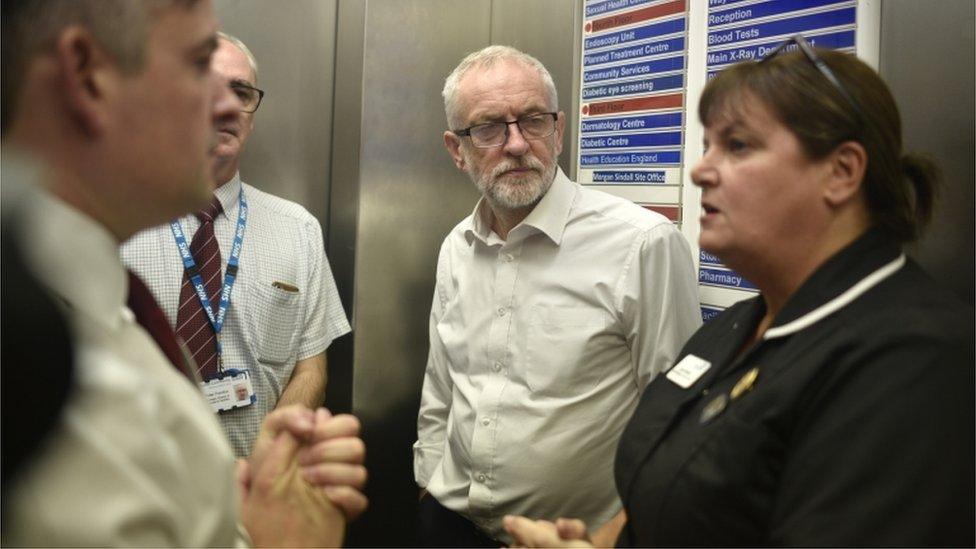General election 2019: What would Labour's NHS pledges mean for Scotland?
- Published

Jeremy Corbyn has said a Labour government would outspend the Conservatives on the NHS in England
While Jeremy Corbyn has been campaigning in Scotland on Wednesday, his colleagues have been setting out health service plans in London.
Conservatives have already committed to a significant uplift in spending. Labour say they'll top that, by Β£6bn per year by 2023-24.
That includes pledges on hospital upgrades, a lot more for mental health, nurse training bursaries and free prescriptions. And it comes with attacks on Tories for the waiting times in the English NHS.
So what does that mean for NHS Scotland?
More money, almost certainly. For every uplift in the NHS budget south of the Border, a portion is added to the block grant heading to Holyrood.
But it won't be added in full, because MSPs now control the levers on income tax, and the Treasury block grant is adjusted (downwards) to take account of that.
Labour at Westminster says it will pay for higher spending with higher tax on higher earners.
That could make it politically easier for the SNP administration to raise tax levels in Scotland to match Corbyn levels. Or MSPs could reverse the current position, and make the Scottish income tax system more attractive for higher earners.
Adding to the block grant doesn't mean the money will be spent on the NHS in Scotland, but it tends to be spent there, because of similar political pressure on Scottish parties.
Several of Labour's commitments look like policies already in place in Scotland, including free prescriptions, reducing the role of the private sector, and 'free care' for older people.
That could leave more money to spend on the parts of NHS Scotland that are creaking most loudly; Accident and Emergency waiting times, social care for those discharged from hospital, and recruitment gaps, including family doctors.
Conservatives are attacking Labour for wanting to move NHS workers to a four-day week. Tories say that would cost a very large amount extra. Labour responds that aspiration could take 10 years, and could be partly funded by productivity gains.
Either way, it could have a significant knock-on effect in Scotland, if NHS pay and conditions are shaped by a pay review body at a UK level, and its report is then adapted and negotiated at a Scottish level.